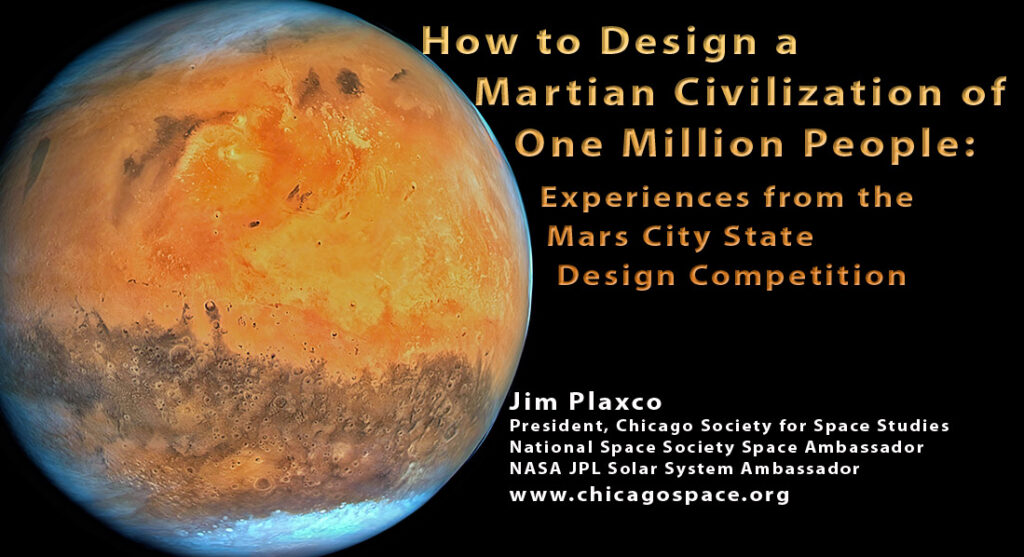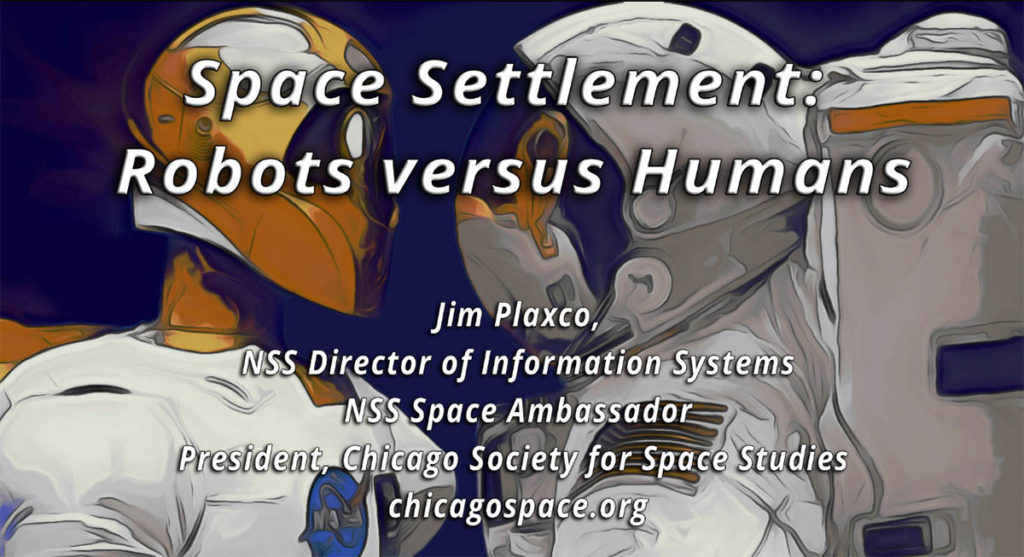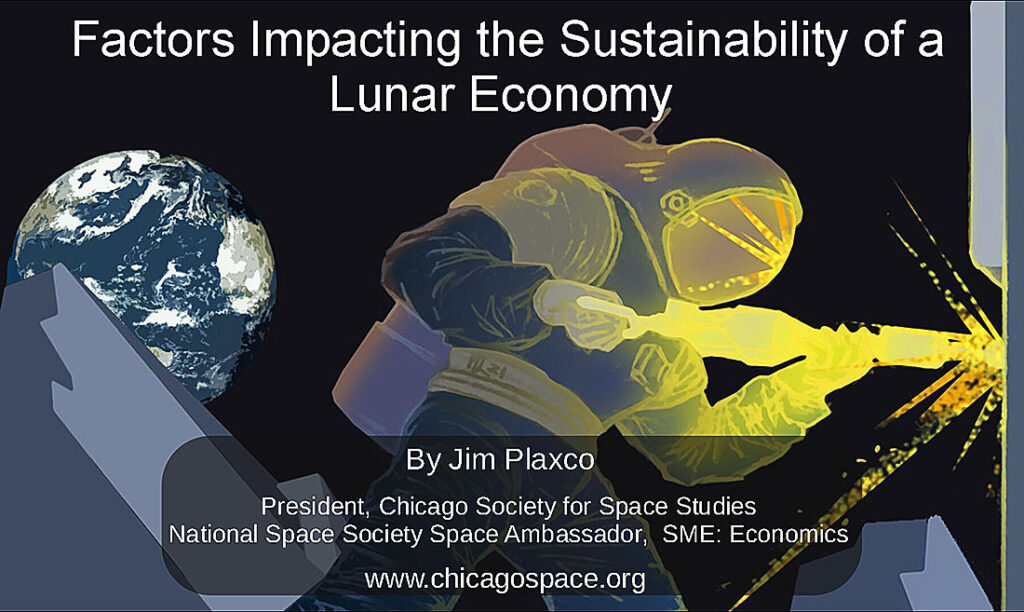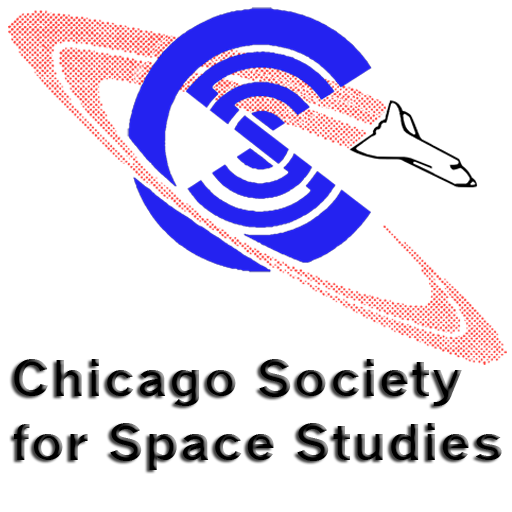President of the Chicago Society for Space Studies

Jim Plaxco in the cockpit of the Xcor Lynx spacecraft mockup
Jim Plaxco is a digital artist and computing professional who has been a space activist since the mid-80’s when he became a member of the National Space Institute. He most recently served as both the Director of Information Systems and Data Protection Officer for the National Space Society. He is also the Webmaster, a Director, and President of the Chicago Society for Space Studies. Mr. Plaxco also created the CSSS Speakers Bureau. He additionally serves as a NASA JPL Solar System Ambassador, a National Space Society Space Ambassador, the National Space Society Space Ambassador’s Economics Subject Matter Expert.
Mr. Plaxco has previously served as both a Director and a Vice President of the National Space Society and as both a Director and a Vice President of the Planetary Studies Foundation. He has been a judge in a variety of space art contests, including art contests sponsored by NASA. He also served as the manager of the Enterprise in Space Orbiter Design Contest and the National Space Society Space Settlement Art Contest.
Lectures and Presentations
Mr. Plaxco speaks on a wide variety of space development, space exploration, commercial space, and astronomical topics to a wide variety of audiences including schools, museums, various civic organizations, and special interest groups. A few of the topics that he has spoken on include:
- newspace and commercial space activities
- space policy and space development
- space tourism
- commercial space stations
- AI, robotics, and space settlement
- the exploration of Mars and Mars imaging
- Space Solar Power and Lunar Solar Power
- space mission planning
- lunar bases
- space economics
- human missions to Mars
- space settlement
- International Space Station (ISS)
- NASA’s Gemini program
- NASA’s Apollo program
- NASA’s Vision for Space Exploraton
- NASA’s Space Shuttle programs
- the Hubble Space Telescope
- space art
- astronomical art
- astronomical image processing
- Earth and Landsat remote sensing
Current core space and space development presentations include
- How Not to Design a Martian Economy
- While providing an overview of a submission to the 2020 Mars City State Design Competition, this program examines the governance and economic policy environment to reveal the system’s weaknesses.
- The Impact of Artificial Intelligence and Robotics on Space Settlement
- Advances in computing power, AI, and robotics has resulted in more capable and versatile robots. This presentation makes the case that, assuming the purpose of space settlement is to make the resources of space available to humanity, robots and not humans should be the focus of space settlement.
- A History of Lunar Cartography and Nomenclature
- Mapping of the Moon and the associated representations of the lunar surface have been heavily influenced by observational technology developments. The technological advances that increased astronomer’s ability to resolve surface features also influnced the development of a lunar cartographic system and an associated nomenclature. This presentation focuses on the most significant lunar cartographic and nomenclature developments during the period of 1300 thru 1900.
- Earth As Art: The View From Space
- Using remote sensing images processed by the author, the case is made that the Earth’s surface is a work of art. A brief introduction to remote sensing and image processing is included.
- Solar Eclipses
- This presentation looks at the history of solar eclipses, eclipse observational techniques, and addresses the science of eclipses.
- Space Settlement: The Moon, Mars, and Beyond
- Will humanity be able to spread across the Solar System as it has spread across Earth? What challenges will humanity face in these new alien environments? This prsentation provides an overview of both the reasons for space settlement and the many challenges to space settlement. In addition, destinations for potential settlement are explored and the unique challenges each destination presents are discussed.
- Space Settlement: Robots Versus Humans
- This presentation looks at the economics of space settlement and contrasts the costs of space industrialization associated with human settlement versus those associated with a robotic oriented path to space development.
- The Challenge of Commercial Space Stations
- This presentation examines the general economic challenges that commercial space stations will face.
- The NASA Commercial LEO Destinations Program
- An examination of the NASA Commercial LEO Destinations program which has established contracts with several aerospace companies for the purpose of building one or more commercial space stations to serve as successors to the International Space Station.
- The Globalization of the Solar System: The Economics of Space Settlement
- Globalization has resulted in a more integrated human society. This presentation examines the issue of whether or not the economic components that make globalization possible on Planet Earth are applicable to a human civilization that spans the solar system. Topics covered include population movement, transportation systems, communications limitations, energy issues, open vs closed systems, likely settlement locations, and the prospects for trade.
- How to Design a Martian Civilization of One Million People
- In 2020, the Mars Society announced their Mars City-State Design Competition which called for designing a martian civilization of one million people. This presentation explores the technical, political, social, and economic challenges of designing that martian civilization.
- The Impact of Artificial Intelligence and Robotics on Space Settlement
- Advances in computing power, AI, and robotics has resulted in more capable and versatile robots. This presentation makes the case that, assuming the purpose of space settlement is to make the resources of space available to humanity, robots and not humans should be the focus of space settlement.
- The Impact of Space Policy on Space Settlement
- A survey of how governmental space policies, trade restrictions, regulatory issues, and international laws and relations impact the prospects for human space settlement.
- Settling, Developing, and Commercializing the Moon
- A survey of the issues and challenges associated with establishing and maintaining a large scale, permanent human presence on the Moon.
- Factors Impacting the Sustainability of a Cislunar Economy
- In order for a lunar colony to be viable in the long term it must ultimately create a positive net flow of value. This presentation looks at the various economic factors that will have the greatest impact on a lunar society’s prospects for economic success.
- Camp Century: Lessons for a Lunar Settlement
- An exploration of the similarities between Camp Century, a nuclear-powered arctic Army base, and future lunar bases with a focus on the commercial opportunities the Moon offers.
- Space Solar Power for Earth
- A look at how space solar power can be employed as a way to meet Earth’s growing demand for energy in a carbon-free, environmentally friendly way.
- The NewSpace Frontier
- A review of the history of private space development and the major players in today’s commercial space and suborbital marketplace. Addressed are the positive and negative aspects of government’s role in the commercial space economy and what it means for the future.
- Planning a Human Mission to Mars
- A review of the issues and the mission design challenges for human missions to Mars.
- Space Art and Space Eploration
- A look at the history space art and its development with an emphasis on how space art has been used to promote space exploration. The role of the NASA Space Art program is also covered.
- NASA’s Gemini Program – Stepping Stone to the Moon(retired – developed specifically for the Adler Planetarium)
- An overview of the Gemini space program and the events preceeding it. Discover how Gemini made the Apollo missions to the Moon possible. Learn about the technology, politics and people behind these daring journeys into space.
- The Future of Human Space Exploration(retired)
- A presentation on NASA’s “The New Vision for Space Exploration” summarizing President Bush’s new human space exploration initiative.
Mr. Plaxco’s most offbeat presentation is “The Universe According to Monty Python” which analyzes the astronomical and cosmological lyrics of Monty Python’s Galaxy Song.
Virtual Presentations
In addition to appearing live at venues in northeastern Illinois, Mr. Plaxco is available as a virtual speaker via Skype, Google Meet, Jitsi, Zoom, or similar services.
Biographical Background Information
In 1988 Mr. Plaxco joined and became an active member of the Chicago Space Frontier L5 and Chicago Society for Space Studies chapters of the National Space Society. He subsequently went on to serve as founder and President of the Northern Illinois Space Advocacy. Mr. Plaxco was elected to the National Space Society (NSS) Board of Directors as the Region 6 Director in 2002 and was subsequently elected to serve as the Vice President of Chapter Affairs for the NSS. His term of office ended in January 2005. In May 2006, Mr. Plaxco was selected to serve as the Chairman for the National Space Society’s Space Settlement Art Contest and Space Settlement Calendar Project. The success of this project led to Jim being presented with the National Space Society Award of Excellence at the 2007 International Space Development Conference. Jim continued as a judge in the art contest the following year.
In October 2007, Jim was selected to serve as the Chair of the National Space Society Web Oversight Committee. In 2008, Jim successfully ran for a seat on the NSS Board of Directors. His term expired in 2012. In 2019, Jim accepted the position of Director of Information Systems at the National Space Society and subsequently became that organization’s Data Protection Officer.
Mr. Plaxco’s other previous non-profit experiences include having served on the Board of Advisors for the Harper College Center for Meteorite and Planetary Studies; serving as Program Director for the Henize Science Learning Center; serving first as Membership Director and Editor of PSF News and later as Webmaster and Vice President of the Planetary Studies Foundation. In 1995, Mr. Plaxco received the Planetary Studies Foundation President’s Award, that organization’s top award, for his work on behalf of the society. Jim also served on the Enterprise in Space Board of Advisors.
Mr. Plaxco received a Bachelor of Science Degree in Economics and a Master of Science Degree in Computer Science from Northern Illinois University.
Mr. Plaxco blogs at Artsnova Digital Art and Space Blog.
Mr. Plaxco can be reached at
Or you can use our contact form.
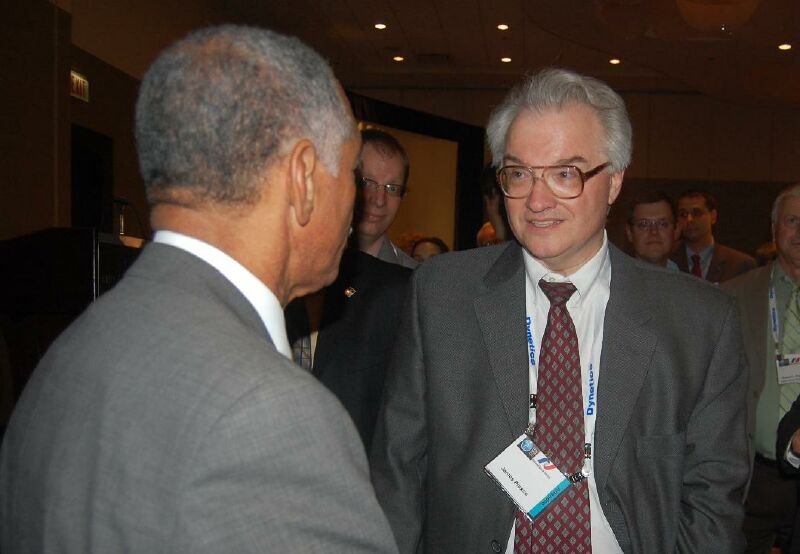
Jim Plaxco speaking with NASA Administrator Charles Bolden
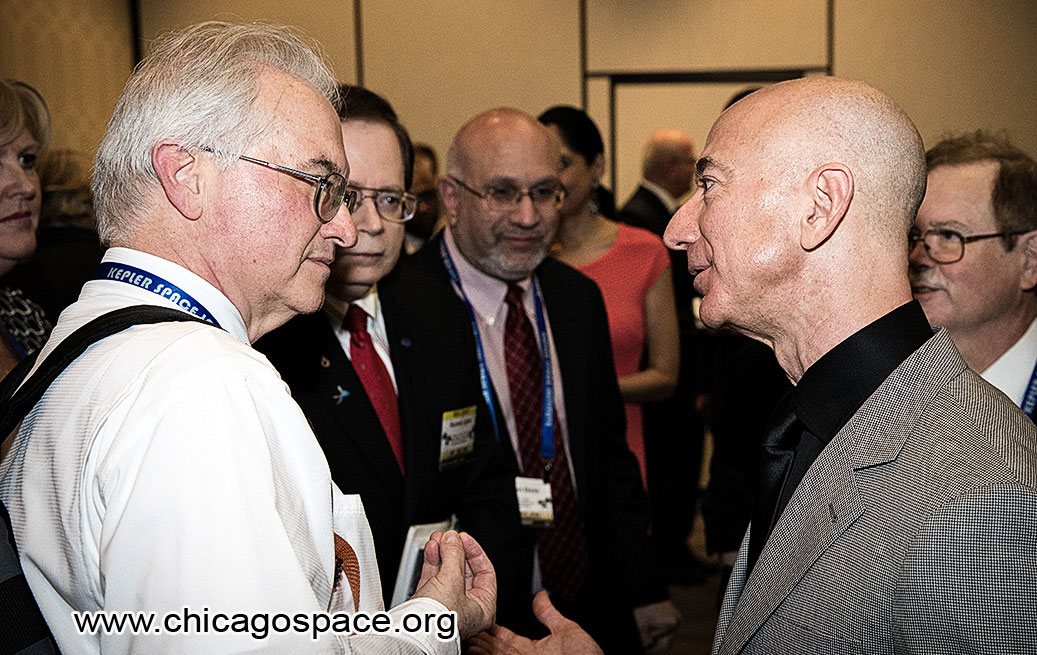
Jim Plaxco speaking with Jeff Bezos at the 2018 International Space Development Conference VIP reception
Title pages from a few of Mr. Plaxco’s space presentations
